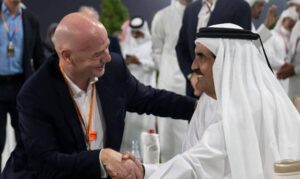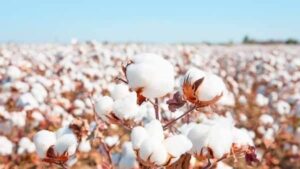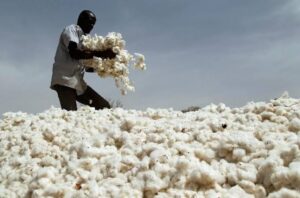In a groundbreaking move, FIFA President Gianni Infantino announced plans for African-made shirts to be worn by players at the 2026 FIFA World Cup, scheduled to be held in the United States, Canada, and Mexico. This initiative, revealed during a side event of the World Trade Organisation Ministerial Conference in Abu Dhabi, marks a significant step towards advancing cotton manufacturing in several West African nations.

H.E. Dr. Thani bin Ahmed Al Zeyoudi, UAE Minister of State for Foreign Affairs, commended the quality of West African cotton, highlighting its sustainability and unique production methods. Al Zeyoudi underscored the potential of football to bring visibility to the region’s cotton industry, which has long served as a cornerstone of many economies.
 Infantino echoed these sentiments, emphasizing FIFA’s commitment to social responsibility and economic inclusion. By promoting cotton processing industries in Africa, FIFA aims to empower nations to capitalize on the lucrative apparel industry and increase profits through exporting value-added products.
Infantino echoed these sentiments, emphasizing FIFA’s commitment to social responsibility and economic inclusion. By promoting cotton processing industries in Africa, FIFA aims to empower nations to capitalize on the lucrative apparel industry and increase profits through exporting value-added products.
Also, read: South Africa Erects Concrete Wall to Fortify Border with Mozambique
The collaboration between FIFA and the WTO builds upon a memorandum of understanding signed in September 2022. This agreement seeks to leverage football’s global reach to promote economic development, particularly in developing countries. The focus on the WTO’s cotton programme underscores efforts to enhance trade conditions and competitiveness for cotton-producing nations.
 Despite being recognized for its sustainability, much of the cotton produced in West Africa is exported in raw form. Through initiatives like this partnership, FIFA and the WTO aim to transform the cotton industry, unlocking its full economic potential and fostering sustainable growth in the region.
Despite being recognized for its sustainability, much of the cotton produced in West Africa is exported in raw form. Through initiatives like this partnership, FIFA and the WTO aim to transform the cotton industry, unlocking its full economic potential and fostering sustainable growth in the region.
As preparations for the 2026 FIFA World Cup gain momentum, the prospect of seeing players donning shirts made in Africa represents not only a symbolic milestone but also a tangible step towards economic empowerment and global recognition for African industries.
